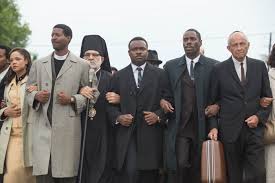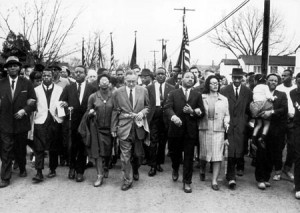Dominique Gilliard is a pastor, theologian and activist. He also serves on the board of directors for the Christian Community Development Association (CCDA), and as the director of racial righteousness experiences for the Pacific Southwest Conference of the Evangelical Covenant Church. You can find his blog at ctobt.com/ and follow him on Twitter @WEB_DuBois_Ture. The following was initially posted on Dominique’s blog on March 6, 2015 and he submitted it to be used also on this CBGE blog.
I would not be the pastor, nor the Christian, that I am today if it weren’t for female leaders in the Church. There have been women, in all levels of leadership, who have played indispensable roles in my faith and spiritual formation. I have been pastored, taught, and discipled by women who are called, anointed, and commissioned by God. These women are not in violation of Scripture; they are continuing a long legacy of women whom God has used and worked through to lead the Church and build the Kingdom. These women are boldly and faithfully living into their created purpose.
The Bible is full of examples of women serving in a variety of leadership positions in both the Old and the New Testament. These women serve as leaders in the Church and in the broader life of the religious communities in which they serve. From Debra, Huldah, and Miriam in the Old Testament, to a plethora of woman like the apostles Lydia and Junia, Anna the prophetess, Phoebe the deacon, Priscilla, Martha, Mary, Euodia, Syntyche, Tabitha (sometimes translated as Dorcas), and the nameless woman at the well in the New Testament — these women all represent a variety of different leadership roles that women are called to serve in and throughout the Body.
Moreover, in both the Old and Testament we see God at work, pouring the Spirit out upon males and females, indiscriminately. This Pentecost is prophesied in the Old Testament book of Joel (2:28-32) and actualized in the Acts account (2:17-21). Biblical scholar Linda Belleville reminds us that during Pentecost “the women among Jesus’ disciples were enabled for witness just as the men were (Acts 1:8, 14-15; 2:7-18). The result was a major paradigm shift from the male priesthood of the Jewish cult to the charismatic worship format and gender-inclusive leadership of the early church.” The book of Acts, known as the record of the early church, attests to this. Throughout the book, the significance of women in leadership is mentioned frequently. Continue Reading »








Do Women and Men Lead Differently?
Filed under: Book & Commentary
Jo Ann Deasy is an ordained Covenant pastor currently serving as the director of institutional initiatives and student research at the Association of Theological Schools in Pittsburgh, PA
Lehman’s work found that differences in leadership between male and female clergy were often minimal. Lehman did find that female clergy were slightly more empowering than male clergy. He found that female clergy tended to lead with their congregations rather than over them. He also found, though, that male clergy also often led in ways that were culturally considered more feminine, empowering, and coming alongside. Continue Reading »
Report This Post